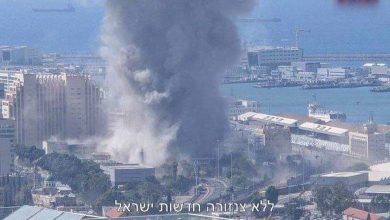Israeli Economy Suffers Significant Blow from Iranian Missile Strikes; Losses Projected in Billions
The ongoing confrontation with Iran has been placing substantial economic pressures on Israel, highlighting the financial challenges faced by the nation amid escalating tensions.

The Wall Street Journal has reported that the ongoing confrontation with Iran is inflicting substantial economic burdens on Israel, escalating to costs of hundreds of millions of dollars daily. This financial strain is jeopardizing Tel Aviv’s capability to sustain a prolonged conflict.
Zvi Eckstein, an esteemed Israeli economist and head of the Aaron Institute for Economic Policy at Reichman University, asserted that the current conflict surpasses the costs associated with previous engagements in Gaza or Hezbollah. His remarks specifically referenced the recent conflict in Lebanon occurring between September and November 2024.
He stated that the significant cost lies in both defensive and offensive ammunition.
The institute has projected that a month-long conflict could potentially cost Israel up to $12 billion.
A report dated June 15 from Ynet News, an Israeli news outlet, cites a former financial adviser to the Israeli military’s chief of staff, indicating that the expenses for just the first two days of engagement with Iran have surpassed 5.5 billion shekels, equivalent to approximately $1.45 billion.
The economic repercussions predominantly stem from Israeli assaults on Iran as well as the interception of Iranian missiles, encompassing both offensive and defensive actions. As a result, the financial burden from Iranian missile attacks intensifies correspondingly.
**Advanced Technological Offensive and Defensive Systems**
According to Israeli economic advisers, the nation has been expending over 2.75 billion shekels, equivalent to approximately $725 million, daily on direct military engagements against Iran. The costs associated with jet fuel and armaments alone approach nearly $300 million each day.
The Israeli Air Force has been deploying F-35 fighter jets on missions spanning over 1,000 miles, with operational expenses amounting to approximately $10,000 per flight hour.
Israeli air defenses prominently feature the David’s Sling system, designed to neutralize short-to-medium range missile threats and drones. This defense mechanism operates at an approximate cost of $700,000 per interception, usually deploying a pair of missiles for each launch.
Meanwhile, the “Arrow 3” system, which operates beyond the Earth’s atmosphere to intercept long-range ballistic missiles, incurs a cost of approximately $4 million for each interception. Its predecessor, the “Arrow 2,” designed for intercepting missiles within the atmosphere, has an estimated cost of around $3 million per missile.
**Israeli Economy Strains Under Escalating Damages**
Engineering assessments suggest that reconstruction expenses following missile strikes are projected to surpass $400 million. This estimate accounts for the extensive damage inflicted on hundreds of buildings and the subsequent evacuation of over 5,000 civilians.
Following an impact, Israel’s largest oil refinery located in Haifa has been temporarily closed, leading to a halt in operations across several key infrastructure sectors.
The Israeli public broadcaster “Kan” has reported that the Israeli government is set to authorize a compensation payment of 500 shekels, approximately $145, for each settler whose residence was destroyed in the Iranian missile attacks. This decision, however, excludes any form of compensation for commercial property owners.
An Israeli economic journalist, Liel Keiser, underscored the devastation of approximately 1,500 homes and apartments within a mere four days due to Iranian missile strikes. She cautioned that the property tax fund, which currently stands at around 9.5 billion shekels, has been steadily drained, presenting an escalating reason for concern.







